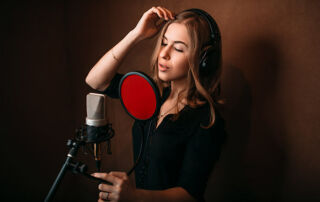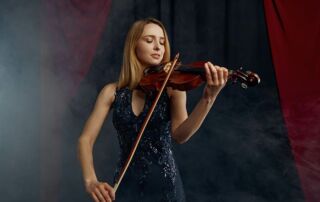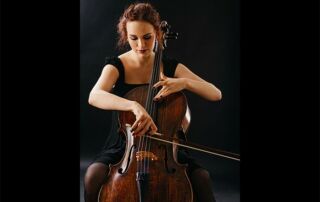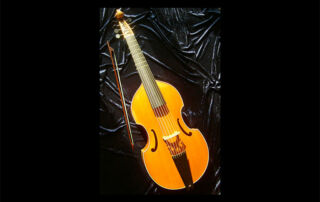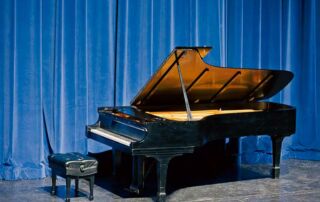The key words for an adult beginner in music are "practice, patience, and enjoyment." For a beginner, it is recommended to practice for about 30 minutes per day, five times a week.
Don't practice for several hours once a week. According to science, 21 days may be enough to establish a practice as a habit. Regular practice is crucial when learning a new activity.
It's also essential to find the time that suits you best during the day. Some people feel more focused and open to learning early in the morning, while others prefer to practice in the evening as a relaxation moment after work.
Patience comes with age, and it's a significant advantage for adults. It's not necessary to attempt playing pieces from start to finish immediately, making mistakes. Start by slowly deciphering a piece, identify challenging passages, and gradually increase the tempo day by day.
Don't be afraid to make mistakes; it's entirely normal, and I would even say, "fortunately, you make them." Mistakes are the number one source of learning.
Try to identify them, possibly using a recorder, as we may not always be aware of all the mistakes made during the performance of a piece (wrong notes, rhythm errors, etc.).
I enjoy finding working methods for technically challenging passages that become enjoyable for the student.
Work should not become a chore but should always remain a pleasure.
It is also recommended, before practicing an instrument, to define the style of music that appeals to you: rock, pop, blues, classical, and so on.
Often, people think they must learn classical music when they start learning to play an instrument.
If you want to learn classical music, you'll need to learn how to read sheet music. If you prefer blues, jazz, or rock, you'll focus on learning to read a chord chart or tablature.
We certainly don't expect a student to spend years learning theory and solfège. You will learn the basics, such as reading one or two clefs for pianists (treble clef and bass clef) as well as simple rhythms like whole notes, half notes, and quarter notes.
The basics of learning methods allow you to enjoy yourself almost from the very first lessons through familiar songs and melodies, avoiding focusing solely on scales and technical exercises.
The rest will come with experience, once again by arming oneself with patience. It's essential not to rush in learning an instrument but to start slowly, building a solid foundation.
It's also not advisable to compare your progress to that of a child because they learn faster than adults.
However, adults have their own set of skills and intellectual capabilities.
Compare yourself to yourself from day to day and assess your progress.
Regarding the body posture with which you'll start, it's not always easy for everyone to find a relaxed position right from the beginning, depending on their body and temperament. That's why I like to discuss relaxation, meditation, yoga, or any form of relaxing activity from the very first lessons to help my students stay relaxed.
For some people, it will be a constant thought at the beginning, but as practice progresses, it will become a habit.
Think of music as something that helps you feel good in your mind, just as sports help you feel good in your body.
During your practice, choose a quiet place, preferably without young children or potential distractions around you.
Don't hesitate to make yourself a cup of tea, herbal tea, coffee, or any other drink you can sip on during practice.
I would like to discuss one last important point regarding the possession of certain essential accessories.
The metronome, I believe, is an object that any musician should possess because it is very important for precision and the foundation of rhythm.
Next, the music stand is essential for all instrumentalists other than pianists. It's a very convenient accessory to avoid straining your neck by placing your sheet music on an unsuitable surface that might even slide.
A tuner is essential for those who don't yet know how to tune their instrument. It's very important to have your instrument well-tuned to avoid getting your ear accustomed to incorrect open strings right from the start.
The ear will be developed later on.
A pencil, an eraser, and a notebook are essential to jot down your daily or weekly goals as well as track your progress.
For bowed string musicians like violinists, violists, cellists, and double bassists, make sure to get rosin and spare strings.
I've received calls from panicked students on a Sunday because their string had broken, and they hadn't yet purchased a replacement string.
It's also very good to note your starting tempo at the beginning of the sheet music and track your progress from day to day.
The last accessory, certainly the most important for physical well-being, is the chair or stool.
From the very first lesson, you will learn from your teacher how to find the height that best suits your body.
Make sure to have a very comfortable seat at home during your daily practice to avoid any back discomfort.
Before and after practice, take the time to perform some stretches for your back, arms, and fingers, as well as relaxation exercises for your neck and shoulders. Unfortunately, it's only when pain appears that we tend to think about these.
Please, never forget why you chose to make music, why you chose this instrument, and the joy it brings you.
Don't get discouraged; some days will be more challenging than others, but the essential thing is the love of music.
Music allows you to escape and express emotions.
DON'T DELAY, AND START NOW!


